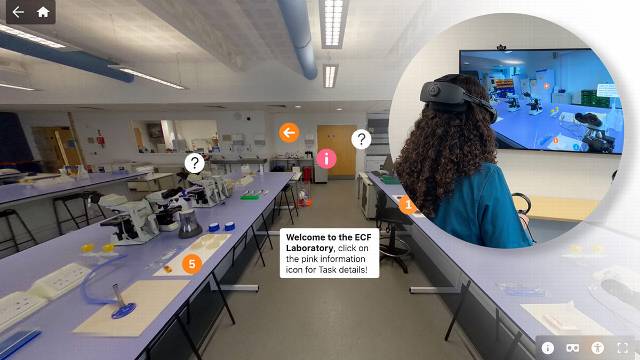
A whole ten years of Entomology and IPM courses have now run at Harper Adams, with 2022 marking a full decade since the first students were welcomed to their studies.
Among the original team of entomologists who joined Harper Adams when a suite of dedicated Masters courses launched in 2012 was Dr Tom Pope, now Reader in Entomology.
As the anniversary approached last year, Tom decided to mark the decade and got in touch with some of the courses’ many alumni.
He wanted to find out more about their recollections of Harper Adams and their studies – and to find out what they are doing now.
Replies came in from across the globe, with students speaking fondly of their studies, the Harper Adams campus, and the University’s staff. Many cited the impact of the late Professor Emeritus – and leading entomologist - Simon Leather in their recollections.
In the latest of our series of pieces catching up with these graduates and where they are now, this blog focuses on Liam – who is now working on the Darwin Tree of Life Project – and Jhaman, who is using his studies to develop Integrated Pest Management systems in Guyana.
Both began their studies in the 2015-16 academic year.
Liam Crowley

What was it like studying at Harper?
Studying at Harper was brilliant as it was the only place offering a dedicated Entomology MSc at the time. The opportunity to study the best subject in the world, surrounded by entomologists and other students interested in the subject was really special.
What is it like doing what you’re doing now?
I am currently a post-doctoral researcher at the University of Oxford, working on the Darwin Tree of Life Project.
This is a dream position for me as it combines all my favourite aspects of entomology: field work collecting and identifying as many species of insects and other invertebrates as possible; lab work processing specimens for high molecular weight DNA extraction; teaching as a member of staff in the Department of Biology; outreach and community engagement as part of the project’s public engagement programme – all whilst being involved with an exciting and ambitious project at the forefront of bioscience!
How did the first prepare you for the second?
The resources, both physical and personnel, devoted to supporting our studies provided a fantastic framework to allow me to really get the most out of my experience.
This included things like the entomology collection, field trips and guest lectures, which helped me to develop my skills and exposed me to the wider entomological community which led to subsequent opportunities.
Jhaman Kundun

What was it like studying at Harper?
Harper is perfectly located in an agriculture setting and creates the exact environment for the kind of courses it offers.
It brings together the latest advancements of technologies, theories and technical knowledge to offer a world class teaching, learning, and research experience - whilst embracing its rich history. Moreover, there are numerous on and off campus extracurricular activities to participate in.
What is it like doing what you’re doing now?
The training I received from Harper allowed me to become a leader in Integrated Pest Management in my country, Guyana and by extension, the Caribbean region. I have the technical knowledge, knowhow and network to analyse situations in relation to pests and their management whilst leading research to develop solutions to emerging problems.
How did the first prepare you for the second?
Harper incorporates real-world situations in its teaching and research programs.
This prepared me to think critically when faced with challenges in my technical field of IPM, and now I am able to utilise an approach based on my training to address emerging and existing pest problems in Guyana.
 Blog: Veterinary Medicine students step into immersive 360° laboratory
At Harper & Keele Veterinary School, students are stepping beyond the traditional microbiology bench and into an immersive 360° labo …
Posted
Yesterday
Blog: Veterinary Medicine students step into immersive 360° laboratory
At Harper & Keele Veterinary School, students are stepping beyond the traditional microbiology bench and into an immersive 360° labo …
Posted
Yesterday







